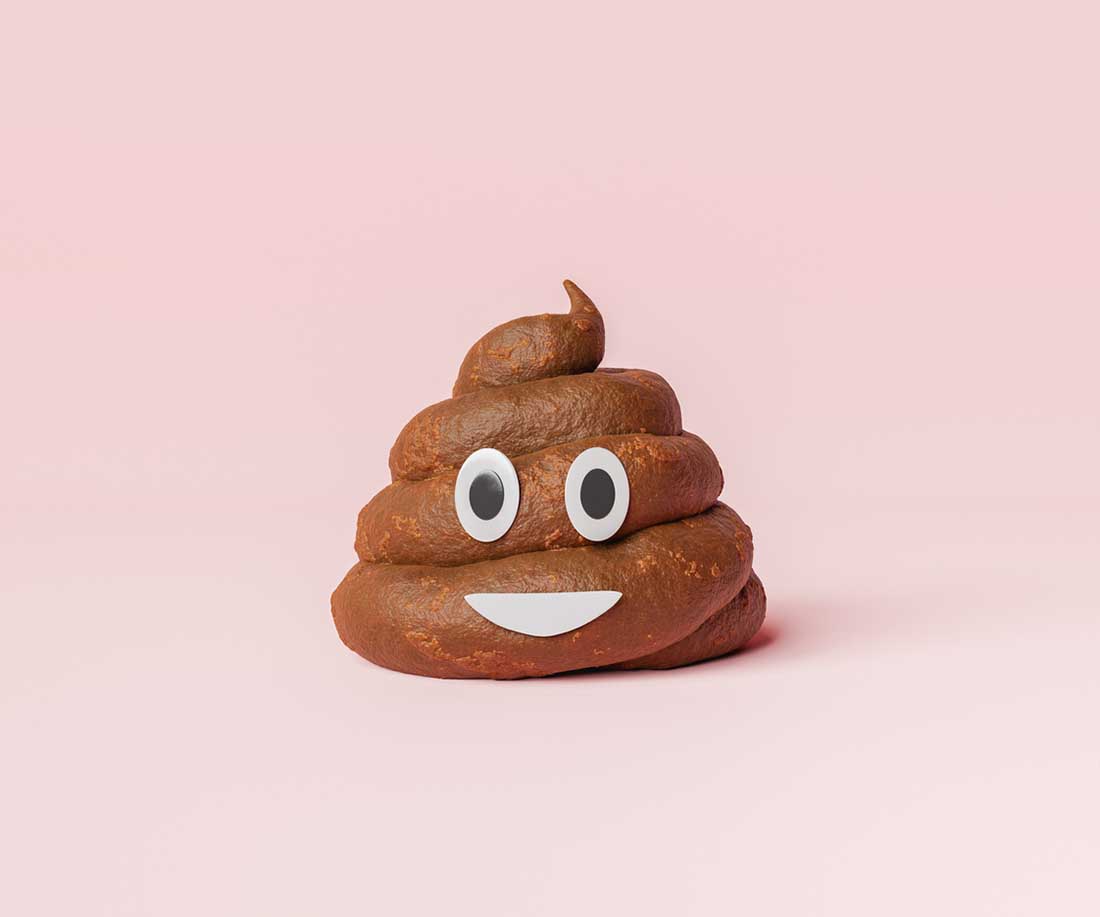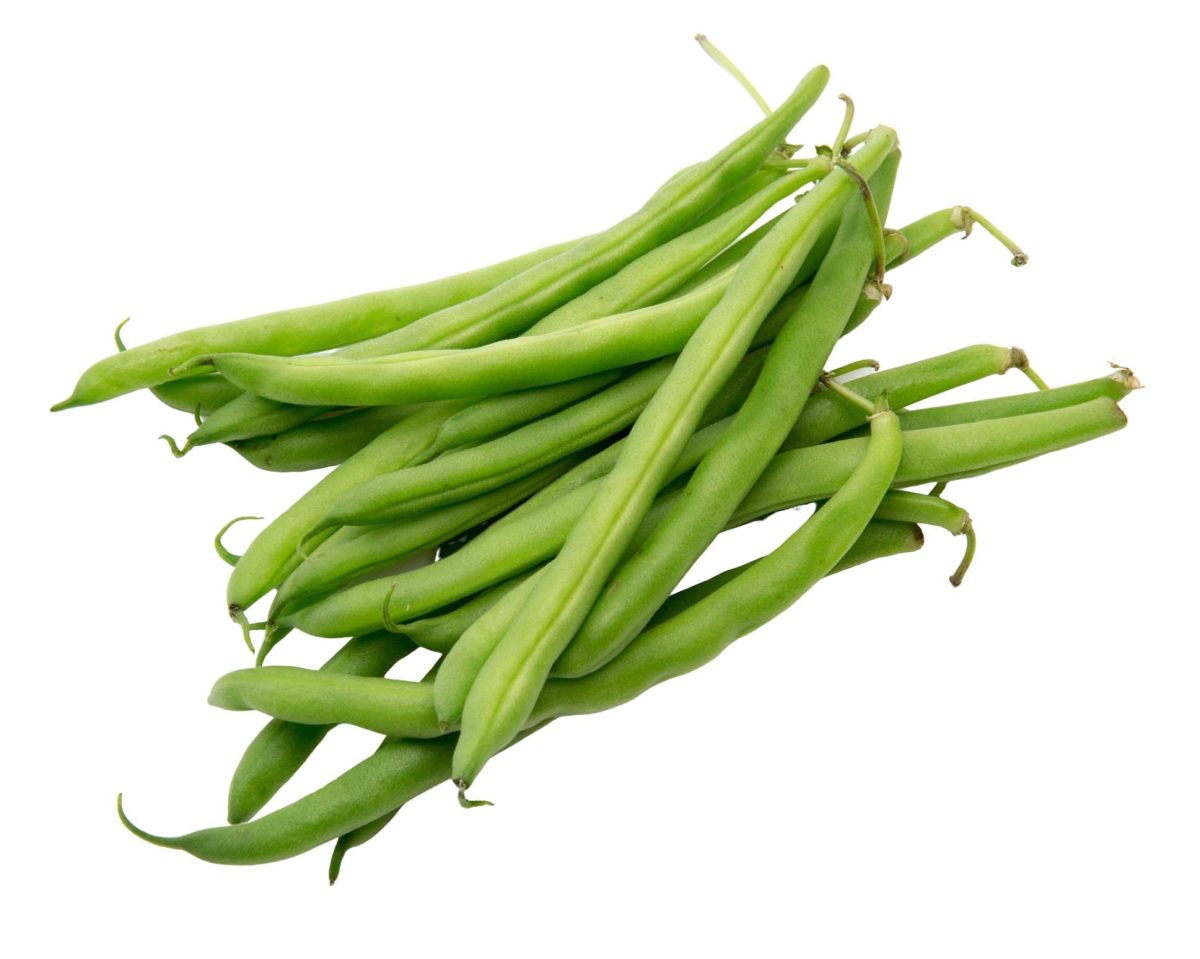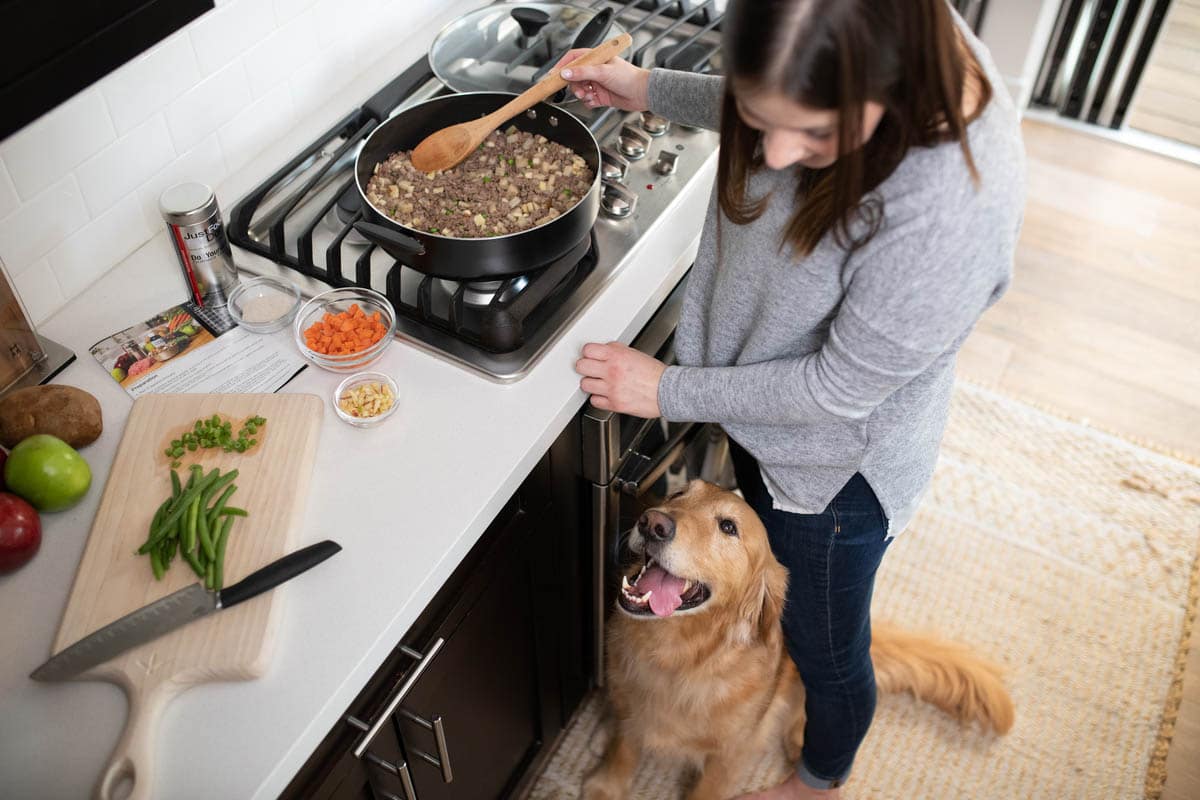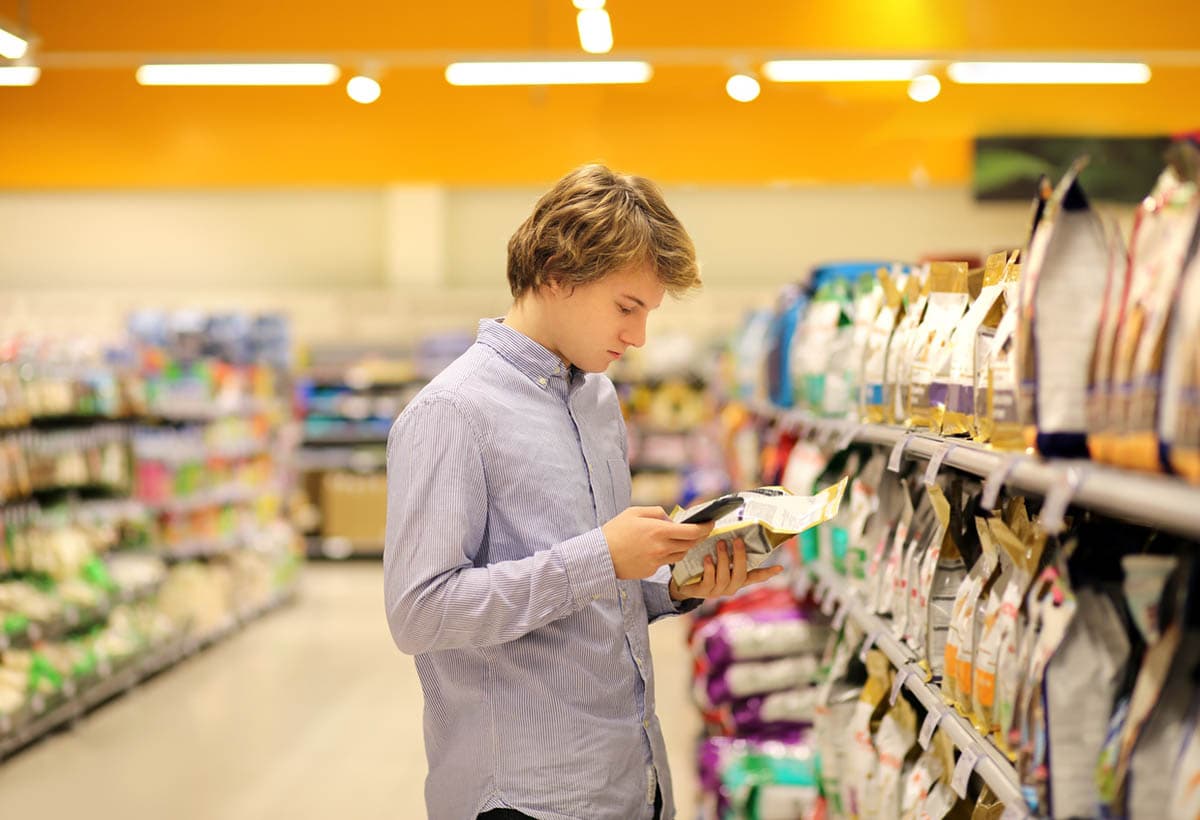10 Surprising Reasons Why Some Dogs Are Poop Eaters
Witnessing your furry friend consuming his own poop is something that could turn off any loving dog owner. We take a look at this behavior, what causes it, what it means for your pet’s well-being, and how you can stop it.
There are few things that loving pet parents find disgusting about their best friend. Witnessing your furry friend consuming his own poop is something that could turn off any loving dog owner.
Poop eaters are often an enigma. You think you’re giving them the best dog food and the best care, so why are they eating their poop? Does it indicate a problem with their digestive system? Is it a problem with the pet food you’re feeding? How can you get them to stop eating poop?
Let’s take a look at this behavior, exactly what causes it, what it means for your pet’s well-being, and how you can stop it.
How Common Is Poop Eating Behavior in Dogs?
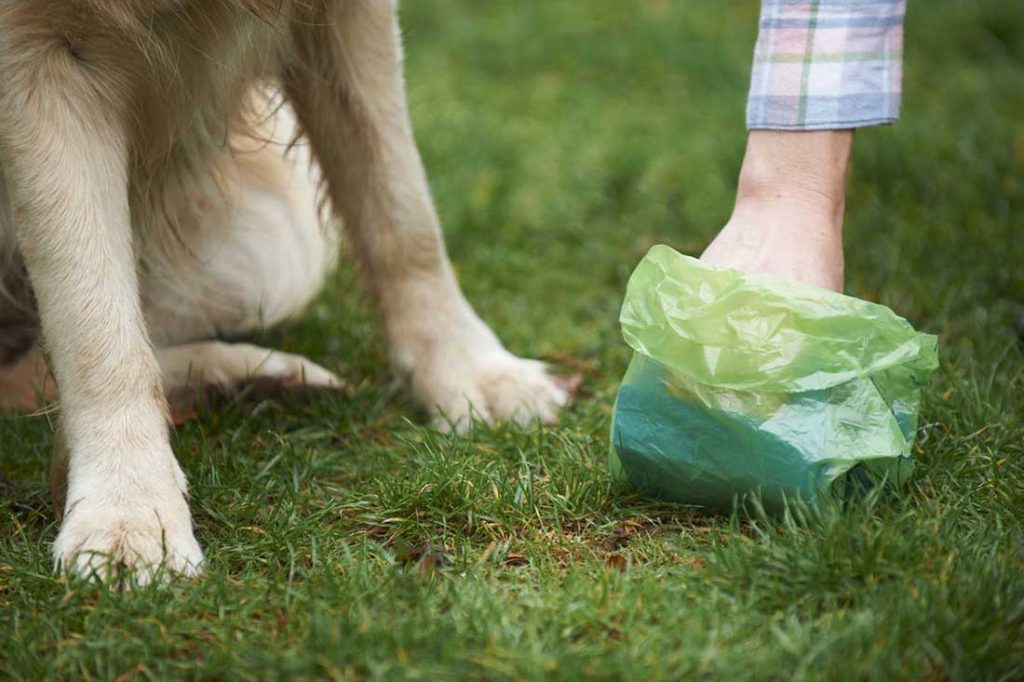
A study conducted by the University of California’s Center for Companion Animal Health found that approximately 23% of dogs will eat poop at least once in their life. About 16% of the over 1,500 dogs in the study were described as frequent stool eaters.
The study also found that dogs who were frequent poop eaters were more likely to have the following characteristics:
- They are ‘greedy eaters’ as described by their owners
- They live with other dogs
- They are more likely to eat dirt
- They are likely to eat cat stools
- They are a terrier or a hound — Shetland Sheepdogs were found to be the most common poop eaters, and poodles were the least common.
The dog’s age did not seem to affect their propensity to consume poo. So, why do dogs eat poop?
Medical Reasons Dogs Eat Poop
The first thing that might cross your mind when you see your doggy eating a little poop is that something is wrong. Could he have a problem with his digestive tract, or does he need a high-protein or perhaps grain-free diet? What about intestinal parasites?
It is, in fact, possible that your dog could have a medical problem that has prompted this strange habit. Here are some possible medical causes:
Certain Medications
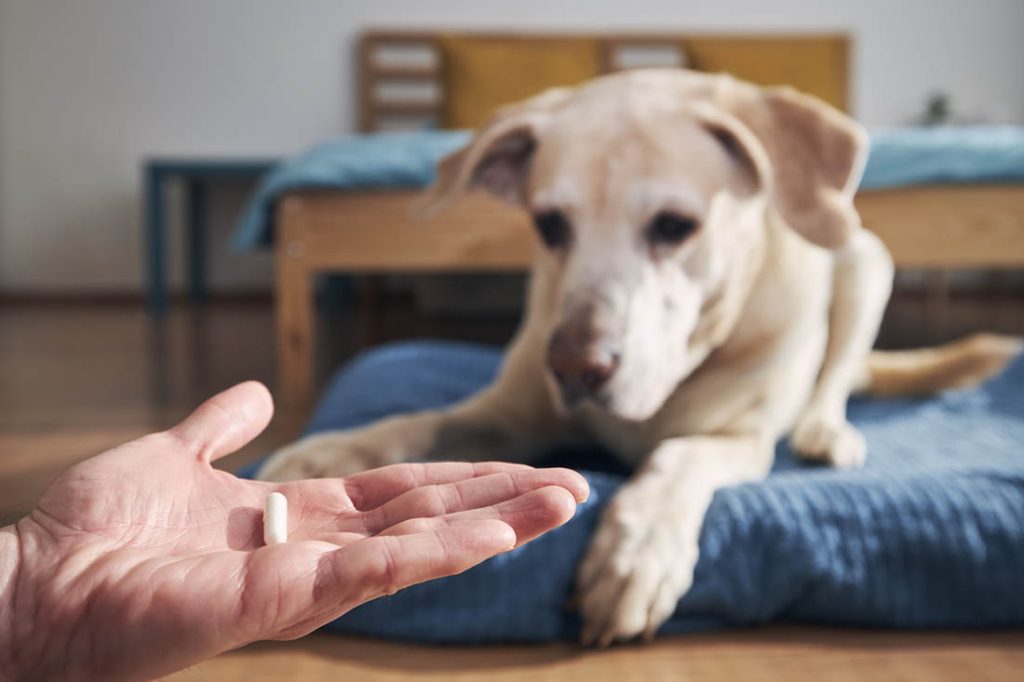
Some medications, like steroids, can cause your furry friend to eat his own feces. Steroids, benzodiazepines (depressants that produce sedation and prevent seizures, like Valium), and certain antihistamines can all increase your best buddy’s hunger and cause him to eat his own stools.
Certain Diseases
Some disease may increase your pooch’s appetite and the likelihood that he will eat eat his own poop. These include diabetes and problems with his thyroid gland. Intestinal parasites can also induce poop-eating behavior. That’s why your first move should be a visit to the vet to ensure that your pet’s health is not the cause behind this behavior.
Certain illnesses can also change either the smell or texture of your dog’s poop to make it more appealing to them.
Problems Digesting Food
Dog behavior, like human behavior, can be the result of digestive health issues. It could be that his normal gut flora is not thriving or it could be little more than a sensitive stomach. If this is behind his behavior, it’s best to consult with a veterinarian and perhaps a veterinary nutritionist.
Dementia/Brain Conditions
Eating poop can also be the result of some problem in the brain, like dementia. This can happen to dogs as they grow older, just like it can happen to humans.
Nutritional Deficiencies
Underlying medical conditions can have other consequences, including nutritional deficiencies. This can lead to coprophagia. When adult dogs start eating stools, it can indicate they aren’t getting the nutrients they need.
This might be because they are being fed a poorly balanced diet, they aren’t getting enough to eat, or they have a medical condition that decreases their ability to absorb nutrients. For example, they might have a deficiency of digestive enzymes, or they might have parasites that are siphoning off the nutrients.
In addition, dogs who begin eating the feces of a particular dog might be doing so because that dog is not digesting his food properly, and therefore, his stools still contain excess nutrients.
Behavioral Reasons Dogs Eat Poop
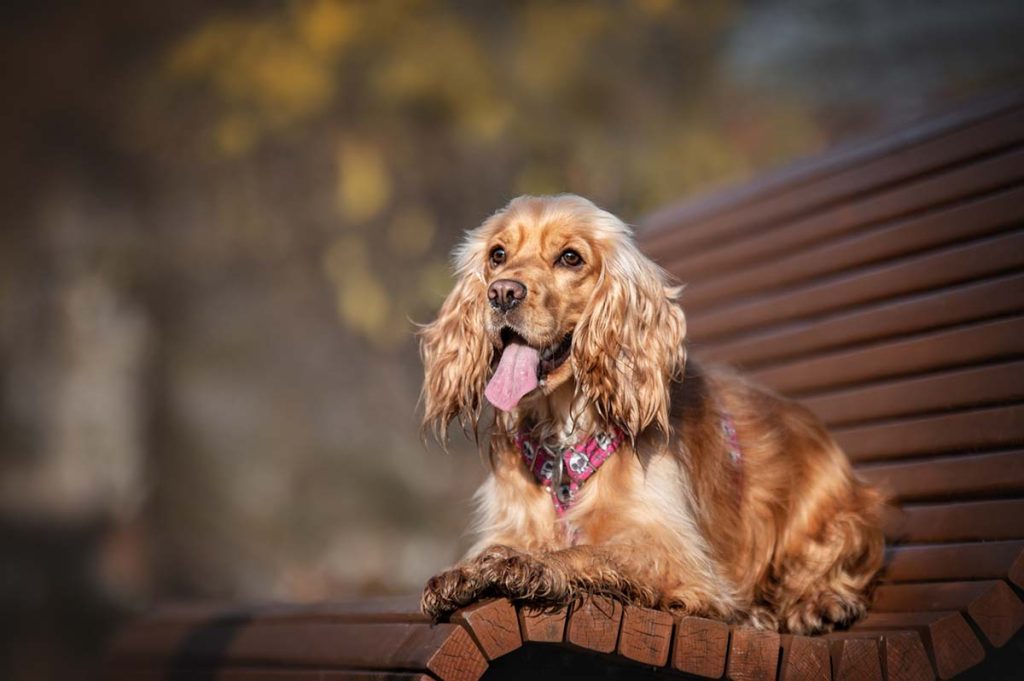
Aside from the possible medical causes for coprophagia, there are some behavioral reasons why dogs might start eating poop.
Instinct
That study conducted at the University of California offered an evolutionary explanation for the behavior of coprophagia. They suggested that it may be the result of behaviors inherited from a dog’s wolf ancestors.
They noted that the patterns in coprophagia involved behaviors directed at feces that were no older than two days old. The authors suggested that it could be an instinctual behavior to clean a den of potentially infective feces.
Certain parasite ova are not initially infective, but they develop infective larvae after two days. Therefore, the strategy of eating the feces before the larvae develop could potentially help reduce the parasite load of the animals in that den.
Attention Seeking
If you’ve seen your dog eating poop, then he has likely seen you seeing him! In other words, he knows that the behavior definitely gets your attention. Even if it is ‘bad attention,’ that can sometimes be better than no attention at all.
That means that if your buddy is feeling bored, he might start gobbling down the poo to mix things up. Even if you’re not around, he might see it as a fun challenge to try to get to your cat’s litter box for a little snack.
Anxiety
Poop eating is also something your dog might do to alleviate stress. If your furry friend suffers from separation anxiety, he might eat poop to feel better. It’s not always anxiety, however. He might simply be trying to avoid punishment during potty training. He might even be hiding the evidence!
Hunger and Taste
If you’re best friend is eating poop, it could also be an indication that he is not getting enough to eat. This might be because you’re not feeding him enough, but if you have more than one dog, he might not be getting enough of his fair share. In addition, it’s important to remember that certain medications can increase his appetite.
It’s also possible that your pooch just likes the taste of feces. After all, poop is just digested food, and it can be a good source of protein and other nutrients. Perhaps he just likes it.
Poop Associated with Food
Your pooch might also have developed an inappropriate association between food and poop during critical development stages. Many dogs who have spent a lot of time confined in a small area where their food is located too close to their potty area can associate poop with food.
Can Your Dog Get Sick from Eating Poop?
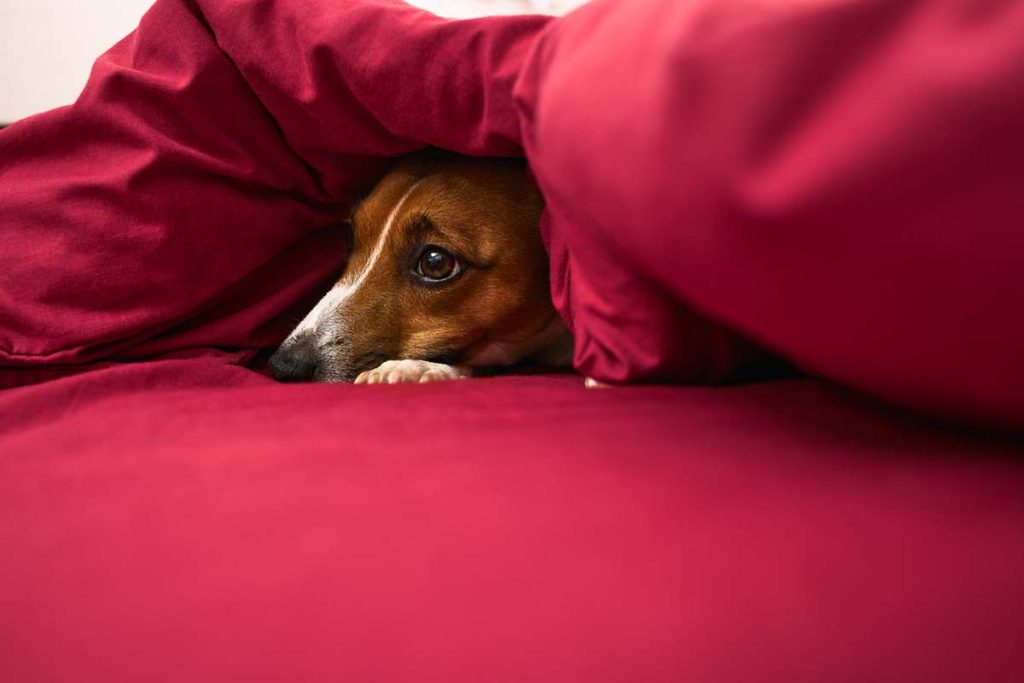
While some medical issues can cause coprophagia, it’s also true that coprophagia can cause medical issues. First, your dog can be exposed to parasites, bacteria, and viruses. Additionally, dogs can also ingest medications by consuming the poop of other dogs.
It’s always a good idea to check with your veterinarian about your dog’s poop-eating behavior. They might recommend something like supplements, or stool-eating deterrents, or refer you to a trainer to get the behavior under control. It can be important for your dog’s health.
What Can You Do to Stop the Poop Eating Behavior?
While the first thing to do if your dog is eating poop is to check with your veterinarian, there are several other strategies you can use to deter poop-eating behavior in dogs. Let’s take a look at what you can do to help resolve this behavior.
Pooper Scooping
The first thing to do is pick up your dog’s poop right away. When he goes out for a potty break, get the bag ready so you can pick up the droppings immediately.
Litter Box Out of Reach
Even if he is eating dog poop, don’t encourage poop-eating behavior by allowing him access to the cat’s litter box. Keep it out of reach, behind a gate, or in a strategic location he can’t reach it.
No Scavenging
There are a number of anti-scavenging strategies you can use to keep your pooch out of the poop. If your dog likes to scavenge poop while you’re out with them, you can use these kinds of strategies:
- Basket Muzzles: These are great for dogs who like to grab feces on the go. A basket covers your dog’s face with a — well — basket so that he can’t eat poop. He may, however, still smear feces all over the muzzle.
- Field Guards: These are similar to a muzzle, but they are specifically designed to protect your dog’s face and mouth in areas where foxtails are prevalent. They also have the added benefit of preventing coprophagia; however, your dog may still smear feces all over them.
- Head Collars: These are similar to the halter you use on a horse, but they’re made for dogs. They allow you to pull his head up when he tries to eat poop.
Feed Your Dog More Often
If your dog is consuming feces because he’s not getting enough food, he may simply need more food or to be fed more frequently. This can reduce his hunger and scavenging behavior, but it’s advisable to check with your veterinarian first before making any changes to his diet.
Prevent Boredom
If your dog is eating poop because he’s bored, you might need to increase his mental enrichment. You might consider brain games for dogs, getting outdoors with him more often, and even training programs to give him something to do. Your dog is smart, and he needs something to do to occupy his time.
Train Your Dog to Leave It!
There are also some training techniques that you can use to prevent coprophagia. The ‘leave it’ cue is one of those. This is a training technique that you use when your dog is presented with poo as the cue. One technique for teaching this is called the automatic leave it; here’s how it goes.
- Take a pocket full of treats when you’re with your dog on a leash.
- Approach the cue — a pile of poo — but not close enough that your dog can eat it.
- When they notice the poo, wait for them to turn their head away from it.
- When they turn their head away yell “Yes!” Or, if you use a clicker, give it a click, and immediately reward your dog for essentially turning away from the poo.
- Repeat this numerous times to condition your dog to avoid poo.
What Is the Best Dog Food for Poop Eaters?
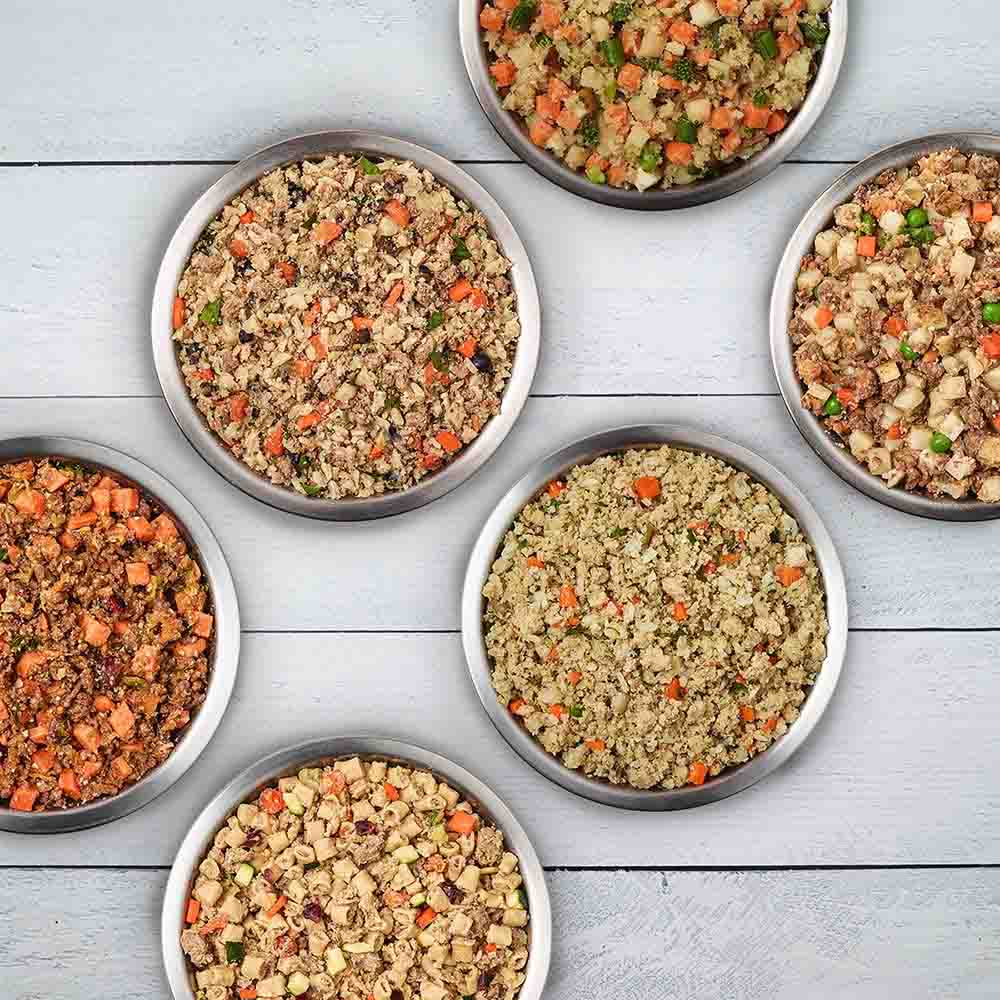
For several reasons, it’s vital to feed your dog a high-quality, well-balanced diet that is appropriate for his age, activity levels, and health condition. Your dog’s diet should contain a high-quality protein source, but it should also contain fats, carbohydrates, vitamins, and minerals that are appropriate for their life stage.
Studies have shown that coprophagia is related to thiamine deficiencies. We’ve already discussed how the behavior can be caused by malabsorption of the nutrients in the food they’re eating. This emphasizes how important a good, balanced diet is for maintaining your pet’s health.
Aside from high-quality vitamins and minerals, a high fiber content can make your dog’s poop less appealing for eating. This can be accomplished by supplementation of your pet’s diet with canned pumpkin and green vegetables or even a small amount of well-cooked grains.
Other Poop-Eating Nutritional Deterrents You Can Use
In addition to a well-balanced diet, some other nutritional products prevent poop-eating. Here’s a list of things you might consider adding to your pet’s nutritional regimen, but as mentioned, it’s always best to consult with your veterinarian before making dietary changes.
Prebiotics and Probiotics
Prebiotic and probiotic supplements may help keep your dog’s digestive system functioning like a well-oiled machine. They will help your dog have regular bowel movements and keep the gut flora healthy. They also help with maintaining a normal immune response and nutrient absorption.
Digestive Enzymes
These are products, such as Forbid, that contain pancreatic and other digestive enzymes. If your dog is having problems with absorption, this kind of additive may help. These are typically only available by prescription, however, so you’ll need to check with your vet.
Vitamin B Supplements
Dogs with malabsorption issues often have a Vitamin B deficiency. Of course, your veterinarian will be able to tell you if this is a problem in your dog’s case. If so, they might recommend high-quality Vitamin B supplements. That may mean injections or dietary additives.
What About Other Food Additives?
There are some food additives, like meat tenderizer, that you can use to prevent coprophagia. You have to be careful with these, however, as some of them can contain ingredients that are toxic for your dog.
For example, some meat tenderizers are high in sodium and contain onion and garlic, both of which are toxic for dogs. The actual tenderizer in meat tenderizer products is bromelain, and as luck would have it, bromelain is also found in fresh pineapple, which is something you can feed your dog. Be aware, however, that there are no scientific studies that prove bromelain is effective for preventing coprophagia.
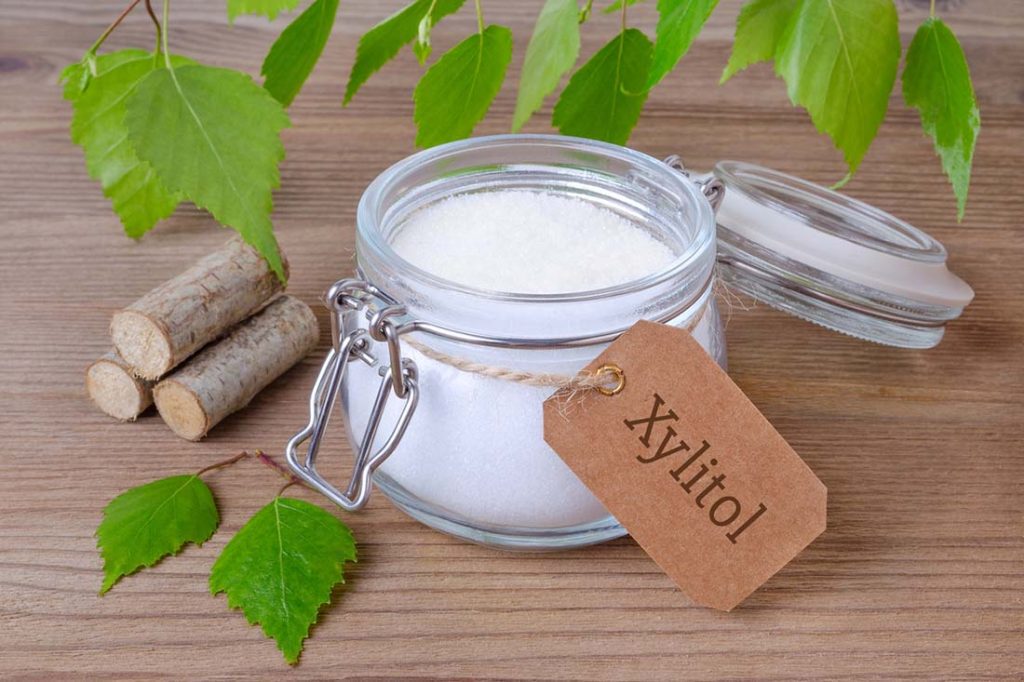
A Cautionary Tale…
If you Google about home remedies for stopping coprophagia, you want to be careful before using those suggestions. As with meat tenderizers, some suggestions could be for products that contain substances that are toxic for your dog. For example, one suggestion is to sprinkle breath mints on a dog’s food, but some breath mints might contain the sugar substitute xylitol. Xylitol is very dangerous for dogs.
That’s why it’s imperative that you check with your veterinarian first before adding anything to your dog’s food. Your veterinarian can find the underlying cause for the behavior and recommend appropriate treatments.
Start with Whole, Fresh, Human-Grade Food
The best dog food for poop-eaters is one made that’s highly digestible with whole, fresh ingredients that deliver human-grade nutrition.
JustFoodForDogs is a pioneer in the fresh pet food industry. Our human-grade meals are designed (and scientifically proven) for superior nutrient absorption. That may help prevent coprophagia as well as a whole host of other problems.
Moreover, our meals are scientifically proven to be more digestible and to promote immune system health. We also offer high-quality supplements for dogs that need a little more nutritional support.
This content is for informational use only and does not replace professional nutrition and/or medical advice, diagnosis, or treatment. It is not a substitute for and should not be relied upon for specific nutrition and/or medical recommendations. Please talk with your veterinarian about any questions or concerns.
